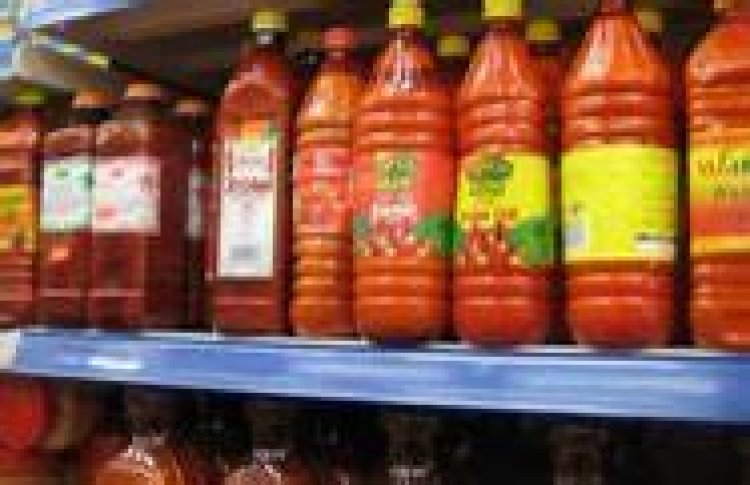Nigeria's Palm Oil Importation Incurs N94 Billion Annual Loss, OAU Professor Reports
At a recent workshop organized by the Standards Organisation of Nigeria (SON), Prof. Kehinde Owolarafe of Obafemi Awolowo University revealed Nigeria's annual loss of N94 billion due to palm oil importation.

Prof. Kehinde Owolarafe, a distinguished figure from the Department of Agriculture and Environmental Engineering at Obafemi Awolowo University (OAU), has brought to light a significant economic challenge plaguing Nigeria. In a recent disclosure made during a one-day sensitization workshop convened by the Standards Organisation of Nigeria (SON) in Osogbo, Prof. Owolarafe unveiled Nigeria's annual loss amounting to N94 billion attributable to palm oil importation.
Nigeria, once a dominant force in global palm oil production and exportation from 1920 to 1960, now finds itself lagging behind as Indonesia and Malaysia surge ahead in this vital sector. Prof. Owolarafe expressed concern over Nigeria's current reliance on importing approximately one million metric tonnes of palm oil annually to meet domestic demand, a stark contrast to its historical prowess in production and exportation.
Despite recent efforts resulting in a slight uptick in domestic palm oil production, Prof. Owolarafe underscored the country's ongoing struggle to achieve significant output. With Nigeria's production hovering around two million tonnes, it pales in comparison to the tens of millions of tonnes churned out by Indonesia and Malaysia. The professor attributed Nigeria's production woes to several factors, including aging oil palm plantations, inadequate processing technologies, and unfavorable governmental policies.
The urgent call to action, as emphasized by Prof. Owolarafe, lies in enhancing both the quality and quantity of Nigeria's palm oil production to meet international standards and facilitate exports. He cautioned against the rampant practice of palm oil adulteration, citing associated health risks and the imperative of adherence to stringent quality control measures.
SEE MORE: Unilag Seeks Partnership with NOUN Lagos Centre
Dr. Ifeanyi Okeke, the Director-General of SON, echoed the gravity of the situation, underscoring the workshop's objective to heighten awareness among stakeholders across the palm oil value chain. Representing the Director-General, Mrs. Ethan Talatu, Southwest Director of SON, reiterated the pivotal role of adherence to industrial standards in ensuring quality throughout the production process. She emphasized that compliance with standards would not only bolster incomes for stakeholders but also uphold consumer confidence in Nigerian palm oil.
Dr. Okeke emphasized the palm oil industry's potential as a catalyst for employment generation, particularly for millions of unskilled and semi-skilled workers, thereby serving as a means to alleviate poverty in Nigeria. He stressed the importance of prioritizing large-scale commercial production to effectively harness the industry's economic benefits.
SEE MORE: SystemSpecs Collaborates with FUNAAB to Introduce Innovative Campus App
The revelations brought forth by Prof. Owolarafe and the subsequent deliberations underscore the pressing need for concerted efforts to revitalize Nigeria's palm oil sector. Addressing the challenges outlined is paramount to reclaiming Nigeria's historical prominence in palm oil production and mitigating the staggering economic losses incurred annually due to importation.

 Chris Oyeoku Okafor
Chris Oyeoku Okafor 



